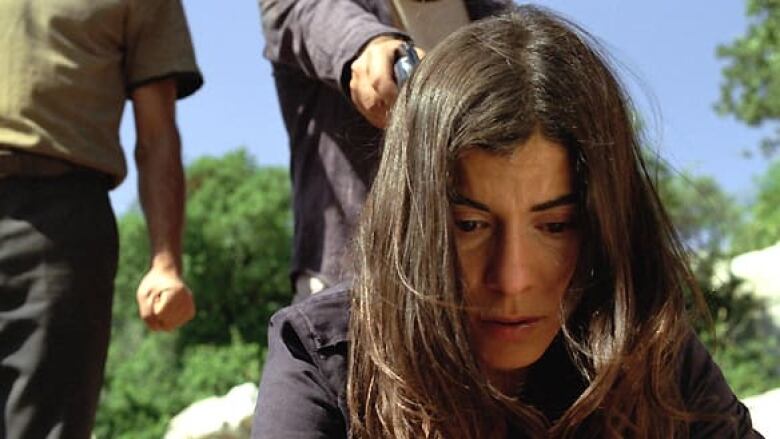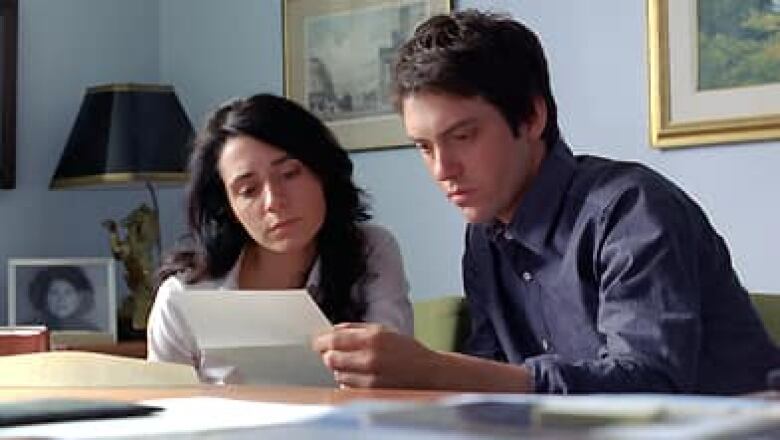Review: Incendies
Fiery Canadian play loses some impact in transition to big screen

Denis Villeneuves Incendies won the best Canadian feature award at this years Toronto and Vancouver film festivals and is Canadas entry for the 2011 foreign-language Academy Award. Clearly, some people are impressed with it. But as a fan of its source, Wajdi Mouawads epic 2003 play (translated into English as Scorched), I dont feel the same way.
This is a film in which you remember not the acting, but the faces.
In his play, Mouawad a Lebanese-Canadian who writes in French and is a major figure in contemporary francophone theatre has created a modern tale of immigration and identity with the dimensions of a Greek tragedy.
But its central, devastating riddle is surrounded by rich characterizations, cultural contrasts and leavening humour. Villeneuves screen adaptation strips away all this finely textured flesh and leaves only the bare bones. That his film is still engrossing is a testament to the power of Mouawads classical plot, but those who know the play will wonder why Villeneuve chose to give it such a stark treatment.
The story opens in Quebec, where Arab-Canadian twins Jeanne (Mlissa Dsormeaux-Poulin) and Simon (Maxim Gaudette) are meeting with a notary, Jean Lebel (Rmy Girard), following the death of their mother, Nawal. Lebel employed Nawal as a secretary and she, in turn, made him the executor of her unorthodox will. It includes a pair of letters and the instructions that Jeanne must deliver one of them to their father, while Simon takes the other to their brother. The twins are confused, since theyd been led to believe their father, whom theyve never known, died in their Middle Eastern homeland. And their mother had never told them she had another son.
The irascible Simon refuses to comply with his mothers enigmatic wishes, but Jeanne is determined to fulfil her part. Armed with nothing more than Nawals passport and a faded photograph of her as a young woman, she embarks on a journey to the Middle East and into her mothers mysterious past.
Villeneuves screenplay, like Mouawads play, intertwines Jeannes search with the young Nawals (Lubna Azabal) own life journey. It ranges from a backward southern village to a liberal city university to a hellish prison and involves rape, torture, massacre and political assassination.

Despite these dark materials, Mouawad wove his play with colour and exuberance, the liveliness of his characters making the tragic events all the more harrowing. Villeneuve, however, prefers austerity. He adopts a single sombre tone for the entire film and removes many of the details that brought the original characters to life. Applied to the right project, like his Genie Award-winning Polytechnique, Villeneuves minimalism can be powerful. But its totally unsuited to Mouawads expansive and warmly human storytelling.
Not surprisingly, two of the most effective sequences in the film recall Polytechnique, which dramatized the 1989 Montreal Massacre. The first involves Nawal and other terrified passengers trapped in a bus that is riddled with bullets and set on fire. The second follows several boys as they scurry through a war-pulverized neighbourhood, trying to dodge a ruthless sniper (Abdelghafour Elaaziz). Its telling, though, that the play presents the latter scene from the perspective of the troubled young gunman, Nihad, who is a key figure in the story. Villeneuve, in contrast, prefers to leave him a cipher.
In fact, he seems reluctant to get inside the heads of any of the characters. In the play, the young Nawal has a close friend and fellow radical with whom she shares her thoughts and dreams a character cut from the film, so that now Nawal is mostly a solitary figure, like her daughter Jeanne. Villeneuve seems to favour such elegant symmetry over the messier, more vital writing of Mouawad.
Villeneuves minimalist approach extends to his direction of the actors, who are limited to playing just one or two notes. This is a film in which you remember not the acting but the faces. As Jeanne, Dsormeaux-Poulin looks a little like a younger, more solemn Juliette Binoche and scans her Levantine birthplace with intelligent, vulnerable eyes. A sullen Gaudette, who played the misogynistic killer in Polytechnique, brings the same angry vibe to Simon. Belgian actress Azabal (Paradise Now) gives Nawal the lineaments of a stoic heroine. Only Girard, as the dedicated notary, offers any hint of the levity in Mouawads original script. But his few wry comments seem out of place in a picture so determinedly grim.
The fine cinematography of Andr Turpin (who also shot Villeneuves eccentric Maelstrom) enhances the movies bleak perspective. The Middle Eastern sections, filmed in Jordan, present us mostly with an arid, rocky, sun-blasted land. The scenes in Quebec have a dreary look, with dirty, melting snowbanks. (Compare them with the cold, snow-shrouded Montreal of the black-and-white Polytechnique, which was bleak but also elegant.)
Grgoire Hetzel provides a generic doleful score punched up with the use of some Radiohead tunes. (The eerie opening sequence of Arab orphan boys having their heads shaved, set to the bands woozily menacing You and Whose Army, is the best thing in the film.)
In a recent article on this site, writer Patricia Bailey examined the spate of depressing movies coming out of Quebec right now. Villeneuves reductive Incendies may be representative of that prevailing mood. But I hate to think it will make unwary viewers assume the provinces playwrights are as gloomy as its filmmakers.
In French and Arabic, with subtitles.
Incendies opens in Toronto and Vancouver on Jan. 21.
Martin Morrow writes about the arts for CBC News.












_(720p).jpg)


 OFFICIAL HD MUSIC VIDEO.jpg)
.jpg)



























































































